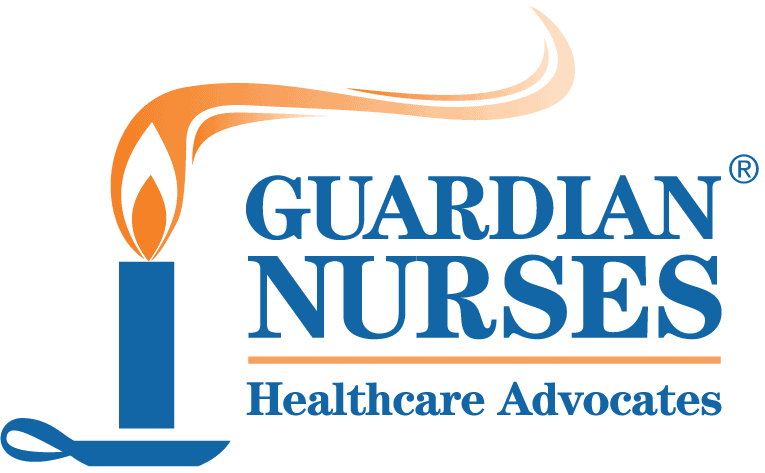Who else thinks summer passed way too quickly? Thought so. Still, fall is a favorite season (not just because the Phillies will make the playoffs), but it’s a season of preparation—stocking up before winter, getting kids back to school, and settling into cooler weather routines.
Healthcare should be part of that preparation. Whether it’s rescheduling a missed check-up, finally booking that colonoscopy, or just staying consistent with medications, the choices you make now can prevent emergencies later.
Remember: Your future self will thank you for taking action today. Don’t let a short-term delay turn into a long-term setback.
And we celebrate two of our Guardian Nurses’ team, Diane Bassett and Lori Rivkin, who will be honored at the Nightingale Awards of Pennsylvania annual gala in Harrisburg next month.
— Betty Long, RN, MHA, President/CEO, Guardian Nurses Health Advocates
Summer tends to pull us in every direction—vacations, family gatherings, cookouts, and longer days spent outside. Healthcare often takes a backseat when schedules are full and the weather is nice. Maybe you skipped that mammogram you scheduled back in June, pushed off a colonoscopy for “after the summer,” or ignored the reminder to refill your cholesterol medication. You’re not alone. But here’s the truth: delaying care—even for a few months—can carry a hidden toll that affects both your health and your wallet.
Think about fall as a time to get back on track. September is a natural reset point, and catching up on care now can prevent bigger problems later.
Why Delays Happen
Healthcare delays aren’t usually about neglect. Life happens. Patients often delay care because:
- Busy schedules: Appointments are pushed off when summer calendars fill up.
- Cost concerns: High deductibles or co-pays make people think twice about non-urgent visits.
- Fear or anxiety: Worry about test results or medical procedures causes avoidance.
- Confusion: Navigating the healthcare system can be overwhelming, and some patients don’t know what’s essential versus optional.
Unfortunately, our healthcare system doesn’t make it easy. Long wait times for appointments, limited provider availability, and insurance barriers only add to the problem.
The Health Costs of Delay
What starts as “I’ll wait until fall” can snowball into a bigger issue. Some examples:
- Screenings: Missing a mammogram, colonoscopy, or Pap smear delays the detection of diseases that are most treatable when caught early.
- Chronic conditions: Skipping follow-ups for diabetes, hypertension, or asthma allows these “silent” diseases to quietly worsen.
- Medications: Running out of prescriptions—even for a few weeks—can destabilize conditions like heart disease, thyroid disorders, or mental health issues.
- Rehabilitation: Post-surgery patients who delay physical therapy often face slower recoveries and reduced mobility.
The body doesn’t hit pause just because we do. The longer the delay, the higher the chance of complications.
The Financial Costs of Delay
Healthcare delays also hit your wallet. A check-up or early treatment is usually far less expensive than addressing advanced disease. Consider:
- An untreated cavity may lead to a root canal—or worse, tooth loss.
- Skipping a blood pressure check could mean a preventable ER visit for stroke or heart attack.
- Putting off routine labs may allow kidney disease or diabetes complications to progress, requiring costly interventions.
And here’s a financial planning tip: If you’ve already met your deductible for the year, fall is the perfect time to schedule procedures, tests, or treatments—before your insurance resets in January.
Getting Back on Track This Fall
The good news: It’s only September. Here’s how to reset and protect your health this season:
- Make a Care Checklist. Write down preventive screenings (mammogram, colonoscopy, bloodwork, vaccines) and upcoming specialist visits.
- Call Now. Many offices book weeks in advance, so getting on the schedule now means you’re seen before year-end.
- Ask About Telehealth. For certain follow-ups, virtual visits can save time and prevent unnecessary delays.
- Refill Prescriptions Early. Don’t wait until you’re down to your last pill—set reminders for refills.
- Use Your Benefits. If your employer offers flexible spending or wellness credits, use them before they expire.
- Bring a Buddy. If you’ve been avoiding an appointment out of fear, bring a friend or family member to support you.
If summer was a season of postponement, let fall be the season of prevention. Call your doctor or nurse practitioner, check your calendar, and get back on track. Delayed care doesn’t just cost time—it can cost health, peace of mind, and money.
The best way to protect all three is simple: don’t wait.

